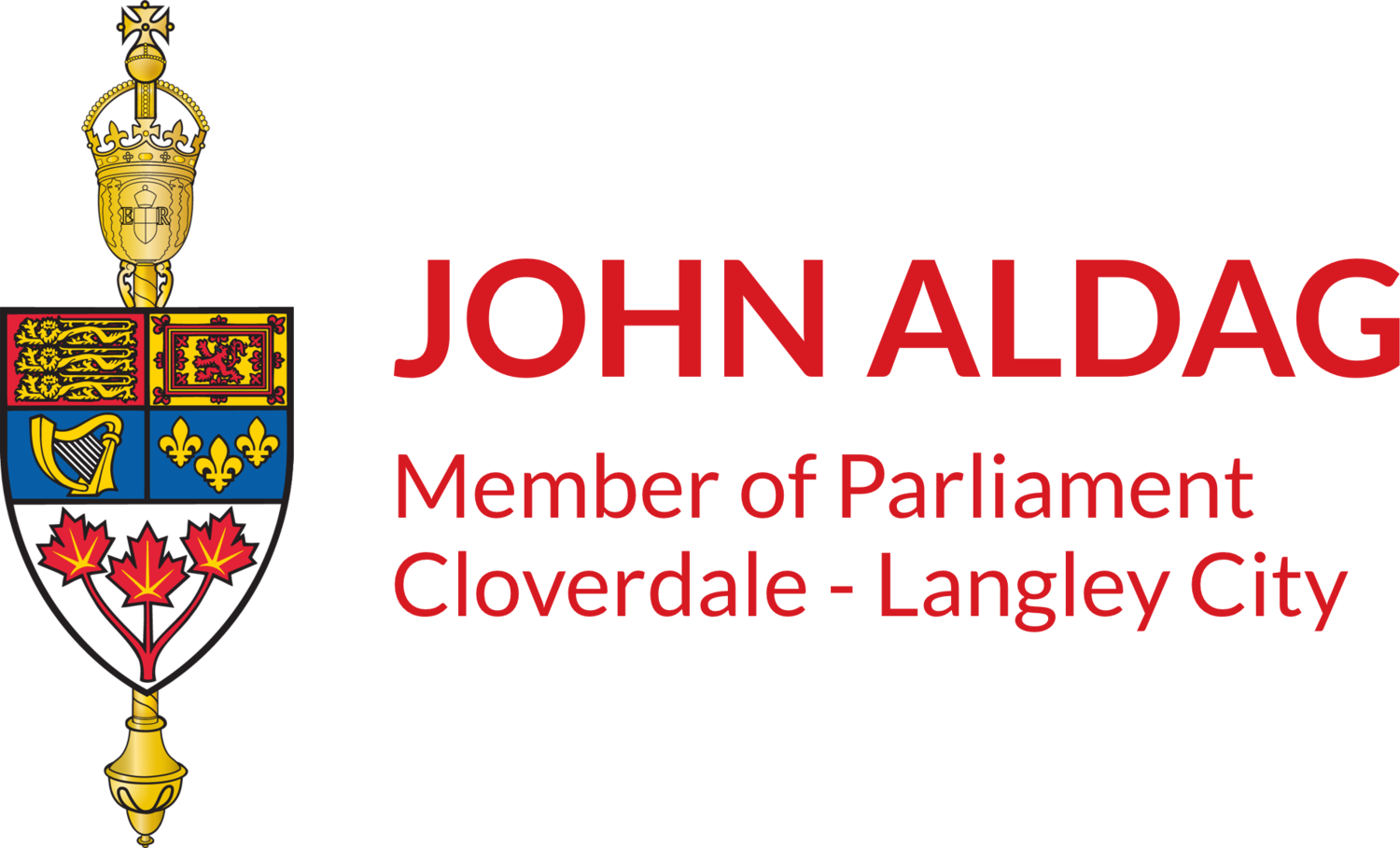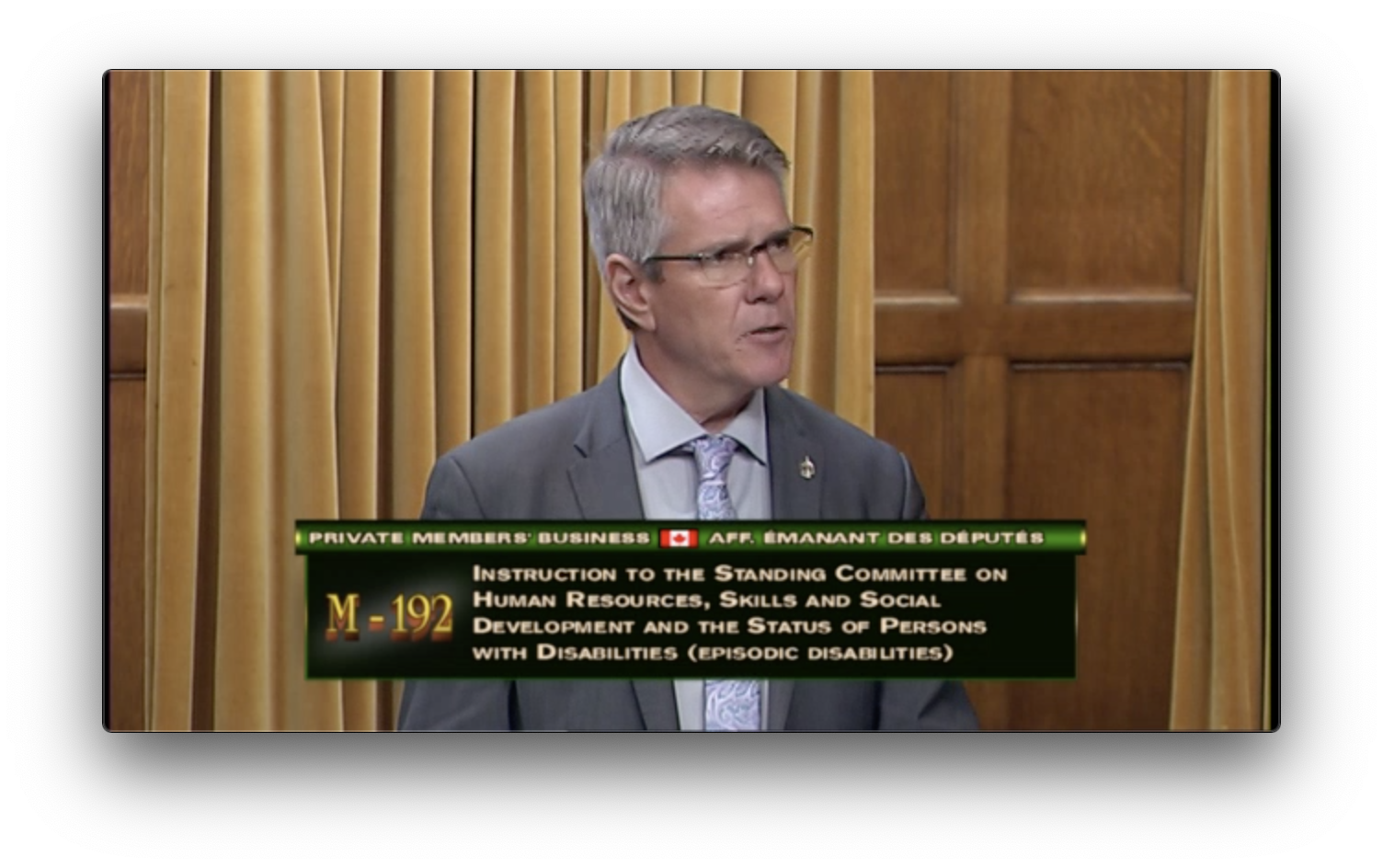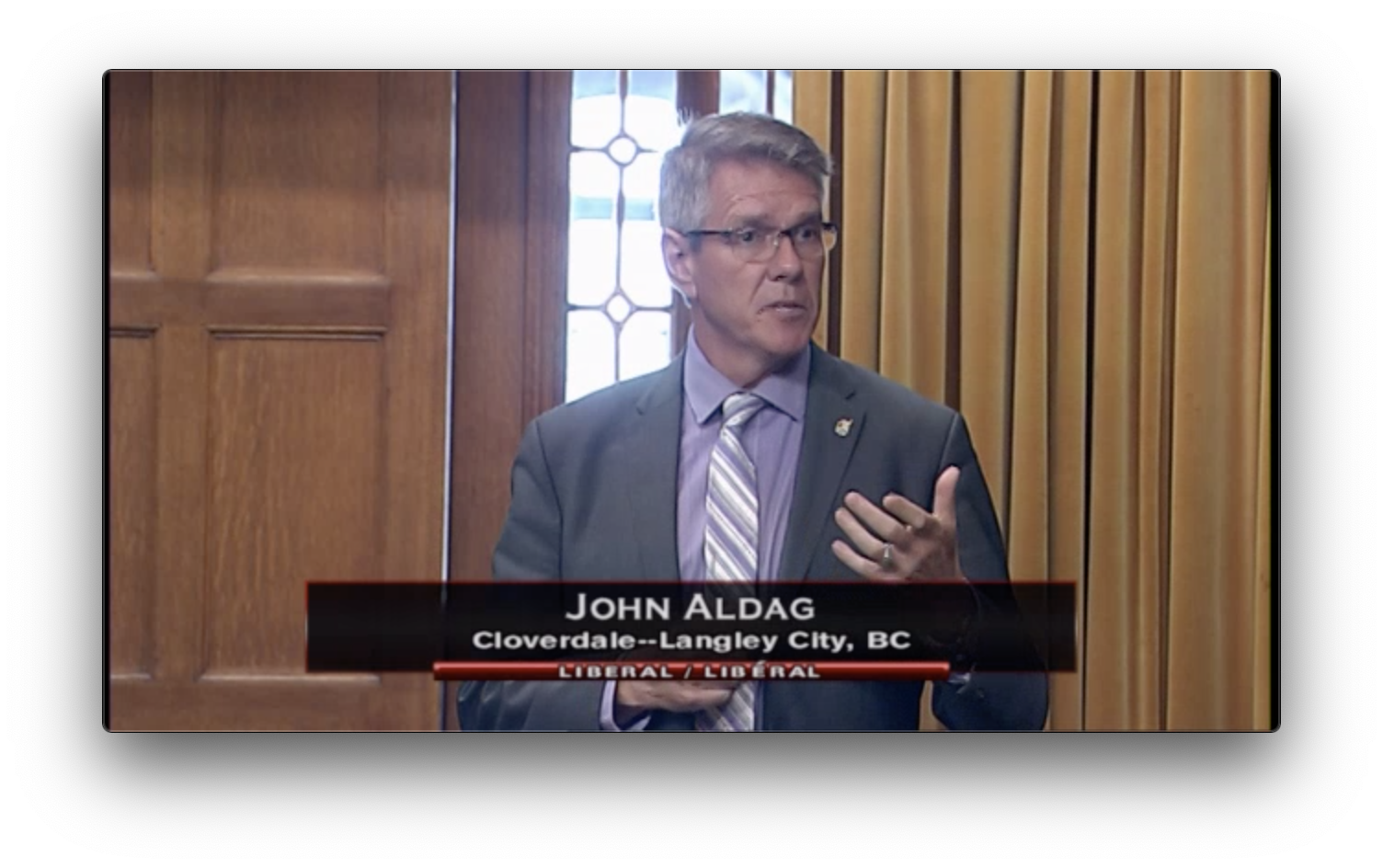✔︎ Bill C-22, Canada Disability Benefit Act
Voted yea. Bill adopted.
Bill
Bill C-22, An Act to reduce poverty and to support the financial security of persons with disabilities by establishing the Canada disability benefit and making a consequential amendment to the Income Tax Act
Vote
Yea.
Rationale
The Act will become an important part of Canada’s social safety net, alongside OAS, GIS, and the Canada Child Benefit. It has the potential to significantly reduce poverty for hundreds of thousands of Canadians with disabilities.
Passed.
Bill Status
Royal Assent received
✔︎ C-81 (Accessible Canada Act)
Voted yea. Bill adopted.
Bill
C-81: An Act to ensure a barrier-free Canada.
Third Reading.
Vote
Yea.
Rationale
C-81 makes make accessibility a reality across federal jurisdiction– so that all people – regardless of their abilities or disabilities – can fully participate and be included in society.
Result
Passed.
Debate (M-192 Episodic Disabilities)
Mr. Speaker, I want to begin by saying that our government takes very seriously the challenges faced by people with episodic disabilities.
Mr. Speaker, I want to begin by saying that our government takes very seriously the challenges faced by people with episodic disabilities.
Episodic disability is a health condition that we all know about but that is difficult to measure and manage because of its unpredictable manifestations. It is for this reason that we take into account the needs of people with episodic disabilities in the development of our legislative programs and policies.
Episodic disability is characterized by moments of well-being and periods of illness or disability. These periods can vary in duration, predictability and severity. It is because of their condition that people with episodic disabilities may have to take time off work and thus use income replacement programs.
In 2012, nearly 3.8 million Canadians aged 15 and over reported having a disability limiting their daily activities, including those with episodic disabilities. People with episodic disabilities often face more employment challenges than people without disabilities. In 2011, almost half, or 47%, of respondents with disabilities aged 15 to 64 reported having a job, but for non-disabled respondents, this proportion was 74%.
Many of us know someone who has an episodic disability, and many people have episodic disabilities as they get older.
Motion No. 192 proposes that the House of Commons request the Standing Committee on Human Resources, Skills Development, Social Development and the Status of Persons with Disabilities to make “recommendations for legislative and policy changes necessary to ensure that the needs of persons with episodic disabilities caused, among other things, by multiple sclerosis, be adequately protected to ensure equity in government policy to support Canadians across all types of disability.”
Our government is well aware that people with disabilities face unique barriers that may limit their participation in our society and economy.
Our efforts to support and advance the integration of people with disabilities are not new. Since day one, we have been committed to this goal. In addition, we have improved and adjusted our programs accordingly. That is also why we have a minister dedicated to accessibility.
Our approach is based on collaboration and communication. That is how the government implements its commitment to people with episodic disabilities. We are committed to supporting people with episodic disabilities through many programs and benefits, such as the Canada pension plan disability program, the disability tax credit and the Canada health and social services disability benefits.
We have heard from people with episodic disabilities and the organizations that represent them that they are not always eligible for benefits of this nature because of the nature of their illness. For example, in June 2018, the Senate Standing Committee on Social Affairs, Science and Technology presented concerns such as these in its report, “Breaking Down Barriers: A critical analysis of the Disability Tax Credit and Registered Disability Savings Plan.”
We are constantly evaluating the extent to which our programs meet the needs of people from diverse groups, including people with episodic disabilities. We also regularly ask for advice on how our programs and policies could be more inclusive and better help Canadians. We appreciate the work of the organizations involved in this regard.
We have already taken important steps to provide better support. For example, in budget 2018, our government announced that it would expand labour provisions for a period of El benefits, maternity and sickness benefits. The purpose of this measure is to provide claimants who have an illness or injury more flexibility to manage their return to work and retain a larger portion of their El benefits.
Of course, I would be remiss if I did not mention Bill C-81. On June 20, 2018, we tabled the accessible Canada act in Parliament. Under this new legislative proposal, our government would require organizations under federal jurisdiction to identify, eliminate and prevent barriers to accessibility, particularly in the area of employment. In addition, Bill C-81 would require consideration of the particular accessibility needs of people with a variety of disabilities, including those with episodic disabilities.
Before we introduced our bill, we talked to and listened to stakeholders. During the “accessible Canada” consultations, we heard from more than 6,000 Canadians and 90 organizations.
Our Government recognizes that it is important to ensure that people with episodic disabilities benefit from the proposed accessibility act in the same way as other people.
In response to stakeholder recommendations, Bill C-81 includes a broader definition of disability and specifically includes episodic disabilities. This addition is a clear sign to those with an episodic disability that our government is working to remove the barriers they face on a daily basis. Our government will continue to work with persons with disabilities, including those with an episodic disability. Our goal is to ensure these people are recognized and supported by our policies, programs and laws. Our commitment to inclusion and accessibility is unwavering.
I want to express my appreciation to our colleague for bringing this issue to the House. There is no reason why all Canadians cannot showcase all of their strengths and talents. People with disabilities share the same contributions to Canada's prosperity as the rest of Canadians. Canada is a country where everyone should be able to benefit from our collective prosperity. We will continue our work to shape an all-inclusive Canada.
Second Reading (Bill C-81 Accessible Canada Act)
Mr. Speaker, I was in the House last week when the minister responsible for Bill C-81 introduced the legislation. As someone who has spent my career in the federal public service, I was really pleased to see that the legislation called for the federal workforce to become more representative of the Canadian population by including persons with disabilities, and different abilities, within the workforce.
I was also really pleased to hear about the funding that would be available to make improvements for accessibility across federal assets. I know the member for Saanich—Gulf Islands has a place within her riding very near and dear to me, the Gulf Islands National Park Reserve. Perhaps the member could speak to some of the great benefits we would see at Gulf Islands National Park Reserve arising from Bill C-81, because I think it would help workforce and visitors to that area to have inclusive experiences. I would like to hear the member's thoughts on how this legislation might benefit her own backyard.
MP John Aldag's Funding for Canadians with Disabilities
Today, John Aldag Member of Parliament for Cloverdale-Langley City on behalf of the Honourable Kirsty Duncan, Minister of Science and Minister of Sport and Persons with Disabilities, encouraged not-for-profit and Indigenous organizations, municipalities and territorial governments to apply for funding for retrofit, renovation or new construction projects of accessible facilities or venues through the 2018 Enabling Accessibility Fund (EAF) call for concepts (CFC) for mid-sized projects.
April 4, 2018 – Surrey, BC
The Government of Canada launches funding opportunity to improve participation of Canadians with disabilities in the Surrey & Langley community.
Today, John Aldag Member of Parliament for Cloverdale-Langley City on behalf of the Honourable Kirsty Duncan, Minister of Science and Minister of Sport and Persons with Disabilities, encouraged not-for-profit and Indigenous organizations, municipalities and territorial governments to apply for funding for retrofit, renovation or new construction projects of accessible facilities or venues through the 2018 Enabling Accessibility Fund (EAF) call for concepts (CFC) for mid-sized projects.
Through the Enabling Accessibility Fund, the Government of Canada is taking action to ensure Canadians with disabilities have access to services and programs that will help them participate fully in their community and in the labour market.
The EAF mid-sized CFC provides contribution funding to organizations for projects that help improve and make Canadian facilities and venues more accessible for people with disabilities. As a result of the projects, eligible organizations must offer or plan to offer services and programs that support the social and labour market integration needs of people with disabilities. Financial contributions between $350,000 and $1 million will be provided through the current CFC for each successful retrofit, renovation or construction project.
The CFC follows a two-step application approach. First, applicants are invited to submit their project concepts. Then, applicants whose project concepts are successful will be asked to submit a detailed proposal at a later date.
Eligible applicants have until May 24, 2018, to submit their project concept application online at https://www.canada.ca/en/employment-social-development/services/funding.html or by mail or email.
“Our communities are stronger and everyone benefits when all members of society are included. The Enabling Accessibility Fund aims to do just that, and plays an important role in making sure that Canadians of all abilities are fully included in their workplaces and communities. I encourage eligible organizations to put forward projects that will help create spaces that are accessible to all.”
- The Honourable Kirsty Duncan, Minister of Science and Minister of Sport and Persons with Disabilities
“The Government of Canada is committed to reducing barriers for Canadians with disabilities and ensuring that everyone has equal access and opportunity. The Enabling Accessibility Fund supports organizations across Canada that improve accessibility and enable Canadians with disabilities to participate fully in society.”
- John Aldag, MP Cloverdale-Langley Cit
Quick Fact
- Since the creation of the Enabling Accessibility Fund (EAF) in 2007, the Government of Canada has funded over 3,000 projects, helping Canadians gain access to their communities’ programs, services and workplaces.
- Starting in 2018–19, the EAF grants and contributions budget will grow to $20.65 million, as Budget 2017 provided $77 million ($70 million in grant and contribution funding and $7 million in operational funding) over 10 years to expand the activities of the EAF and support more small and mid-sized projects, including youth‑driven proposals, aimed at improving accessibility in Canadian communities and workplaces.
- This is the Government of Canada’s second funding opportunity for mid-sized projects under the EAF. The mid-sized projects component was launched in 2010 and since then, has undergone changes to better suit the needs of applicants, including making the objective and parameters of the CFC more precise.
Associated Links
For more information:
Carly Haugen
Constituency Assistant
Office of John Aldag, Member of Parliament
604-5757-6595
john.aldag.a1@parl.gc.ca
Annabelle Archambault
Press Secretary
Office of the Minister of Sport and Persons with Disabilities
819-934-1122 / TTY: 1-866-702-6967
annabelle.archambault@canada.ca
Media Relations Office
Employment and Social Development Canada
819-994-5559
media@hrsdc-rhdcc.gc.ca
Follow us on Twitter
✘ C-348 (Persons with Disabilities)
Voted nay. Motion defeated.
Bill
C-348: An Act to amend the Department of Employment and Social Development Act (persons with disabilities).
Second reading.
Vote
Nay.
Rationale
Our government has taken significant steps to support persons with disabilities, including being the first government to appoint a dedicated Minister of Sport and Persons with Disabilities. We've also proposed $12.1-million in Budget 2018 to improving service delivery for people with disabilities. Further, our government has been engaged in the creation of new accessibility legislation, involving extensive consultations with the disability community. Similar to Bill C-348, the work our government has been doing aims to end the piecemeal approach to programs, legislation, and services for people with disabilities.
Result
Defeated.




